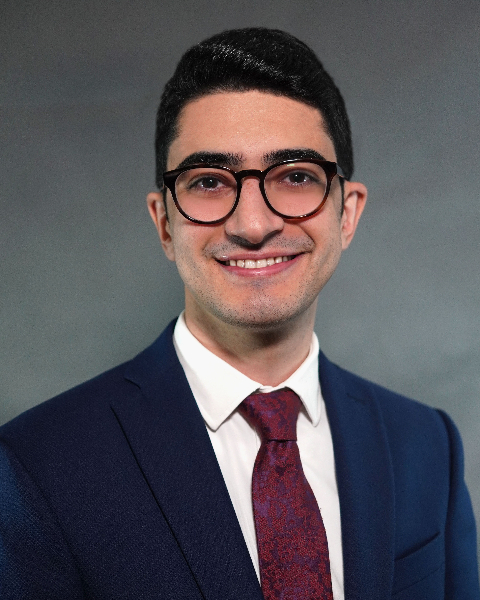PQA 06 - PQA 06 Biology and Patient Reported Outcomes/QoL/Survivorship Poster Q&A
2827 - The Radiotherapy Information Gap in Survivorship Care Plans
Monday, September 30, 2024
5:00 PM - 6:00 PM ET
Location: Hall C
Screen: 8

Ramez Kouzy, MD
MD Anderson Cancer Center
Houston, TX
Presenter(s)
R. Kouzy1, E. Cha1, E. Holliday2, A. C. Paulino1, and E. B. Ludmir2; 1Department of Radiation Oncology, The University of Texas MD Anderson Cancer Center, Houston, TX, 2Department of Gastrointestinal Radiation Oncology, The University of Texas MD Anderson Cancer Center, Houston, TX
Purpose/Objective(s): In the United States, we are witnessing an unprecedented increase in cancer survivorship, thanks to advancements in cancer care, with radiation therapy (RT) playing a critical role in treatment for approximately half of these patients. Recognizing this need, the Institute of Medicines 2005 report and the American Society for Radiation Oncologys (ASTRO) Accreditation Program standards emphasize the importance of Survivorship Care Plans (SCPs), including detailed RT documentation, for all cancer survivors. Our aim is to evaluate the quality of RT information provided in publicly available cancer treatment summaries and survivor plans. Materials/
Methods: We located publicly available cancer treatment summaries and SCPs online. We then extracted and cataloged variables specifically related to RT, aligning with the standards set forth by ASTRO in their 2016 publication of treatment summary and SCP template. We then labeled and calculated frequencies across care plans to evaluate any gaps.
Results: Our analysis included 18 care plan templates, encompassing both treatment summaries and survivor care plans. Seventy-seven percent of the templates were geared towards adults. Most templates (61%) were from the American Society of Clinical Oncology (ASCO). The templates varied between generic (44%) and disease-specific (56%). The presence of a radiation oncology contact was noted in 15 out of 18 templates (83%). Any RT treatment was mentioned in almost all templates except one. Specific details such as dose and modality were only mentioned in 33% (6/18) of cases. Fractionation schedules and RT treatment times were infrequently detailed, mentioned in only 5 and 4 templates respectively, although the end time of treatment was more commonly included, appearing in 13 templates (72%). Specific RT procedures, such as brachytherapy, were mentioned in only 3 templates but notably absent from the cervical cancer template. The mention of RT-specific toxicity was scarce (11%), and there was no templates that mention concurrent treatments with RT or the sequence of RT within the treatment regimen (e.g., adjuvant, pre-operative). Notably, the Childrens Oncology Group (COG) long treatment plan contained the most comprehensive RT-related information.
Conclusion: Our investigation into the quality of RT information in publicly available cancer treatment summaries and SCPs reveals a concerning scarcity of detailed RT information. This shortfall is particularly significant given the advancements in RT techniques, which goes beyond dose and location as predictors of long-term toxicity. The heterogeneity in RT modalities means that not all treatments are equal, with varying side effect and toxicity profiles that can impact survivorship long-term. Our findings underscore the urgent need for radiation oncologists to take a more active role in SCP planning, thereby facilitating better informed, coordinated, and patient-centered care for cancer survivors.
Purpose/Objective(s): In the United States, we are witnessing an unprecedented increase in cancer survivorship, thanks to advancements in cancer care, with radiation therapy (RT) playing a critical role in treatment for approximately half of these patients. Recognizing this need, the Institute of Medicines 2005 report and the American Society for Radiation Oncologys (ASTRO) Accreditation Program standards emphasize the importance of Survivorship Care Plans (SCPs), including detailed RT documentation, for all cancer survivors. Our aim is to evaluate the quality of RT information provided in publicly available cancer treatment summaries and survivor plans. Materials/
Methods: We located publicly available cancer treatment summaries and SCPs online. We then extracted and cataloged variables specifically related to RT, aligning with the standards set forth by ASTRO in their 2016 publication of treatment summary and SCP template. We then labeled and calculated frequencies across care plans to evaluate any gaps.
Results: Our analysis included 18 care plan templates, encompassing both treatment summaries and survivor care plans. Seventy-seven percent of the templates were geared towards adults. Most templates (61%) were from the American Society of Clinical Oncology (ASCO). The templates varied between generic (44%) and disease-specific (56%). The presence of a radiation oncology contact was noted in 15 out of 18 templates (83%). Any RT treatment was mentioned in almost all templates except one. Specific details such as dose and modality were only mentioned in 33% (6/18) of cases. Fractionation schedules and RT treatment times were infrequently detailed, mentioned in only 5 and 4 templates respectively, although the end time of treatment was more commonly included, appearing in 13 templates (72%). Specific RT procedures, such as brachytherapy, were mentioned in only 3 templates but notably absent from the cervical cancer template. The mention of RT-specific toxicity was scarce (11%), and there was no templates that mention concurrent treatments with RT or the sequence of RT within the treatment regimen (e.g., adjuvant, pre-operative). Notably, the Childrens Oncology Group (COG) long treatment plan contained the most comprehensive RT-related information.
Conclusion: Our investigation into the quality of RT information in publicly available cancer treatment summaries and SCPs reveals a concerning scarcity of detailed RT information. This shortfall is particularly significant given the advancements in RT techniques, which goes beyond dose and location as predictors of long-term toxicity. The heterogeneity in RT modalities means that not all treatments are equal, with varying side effect and toxicity profiles that can impact survivorship long-term. Our findings underscore the urgent need for radiation oncologists to take a more active role in SCP planning, thereby facilitating better informed, coordinated, and patient-centered care for cancer survivors.
